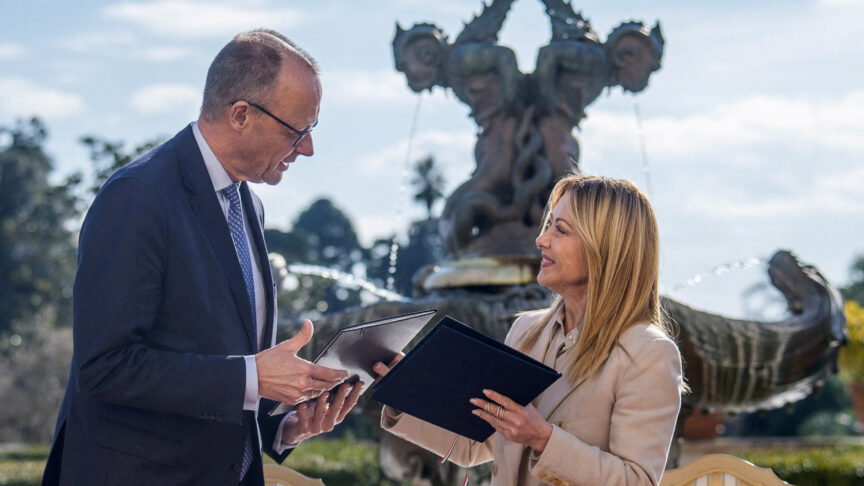Flatter and faster: New Western Balkans pathways to the EU
The French veto on North Macedonia EU membership shows that Brussels urgently needs a new approach to EU enlargement
“Dear Aunty Europe,” was how leading journalist, the late Dejan Anastasijevic, began his open letter to the European Union back in 2017. Writing on behalf the ‘Western Balkans Six’, he pointed out that a long 14 years had passed since the EU made its original promise of membership to the six at the Thessaloniki Summit. “It’s been a while. We should talk”, he said. Now, following the failure of this month’s European Council meeting to open accession talks with North Macedonia and Albania, this conversation has taken on a new urgency.
The EU’s inability to honour its promise is a huge setback for the region, but the reality is that the enlargement process has not been functioning for a long time. Originally, enlargement was based on the expectation that membership would be attainable within a timeframe that would allow current political actors to stake their political futures on it. For people in the Western Balkans, the process promised early progress towards a stable and prosperous life. While enlargement also aimed at the higher political goal of European unity, at its heart was a trade-off between reforms and the delivery of concrete benefits.
Unlike the EU’s enlargement to central Europe, which had been a top strategic priority for the EU, the Western Balkans has long been low down on the EU’s agenda, particularly after Europe was hit by the financial and migration crises. Preoccupied by these events, the EU had less time and energy to devote to its immediate periphery. In the Western Balkans, the prospects of freedom of movement and new foreign investment lost credibility, while, at the same time, the progress of reforms remained slow and uneven, and in recent years has experienced some significant reversals. As a result of these mutually reinforcing tendencies, the accession process lost momentum. The European Commission’s efforts to keep it alive by splitting it into ever smaller steps remained unconvincing. The membership perspective was pushed ever further into the future until it turned into an impossible dream, with the opening of chapters as part of the accession process an empty box-ticking ritual amounting to a mutual exchange of hypocrisy.
So, enlargement itself needs thorough and far-reaching reform. But how? The central objective would be to revive the conditionality that is the core of enlargement. The EU’s incentives need to be more credible: they need to come in a timeframe relevant for current political actors and be significant enough to matter to the public. The conditions for the delivery of these benefits need to be clear and realistic, and the evaluation of progress objective and consistent.
The Western Balkans has long been low down on the EU’s agenda
Currently, the enlargement process has a vertical structure: countries climb up from association agreements via the commission’s “opinion” (“avis”), through candidate status and onto accession talks, until they reach the very last level: membership. The EU should not abandon this approach altogether, but in order to restore the dynamics of enlargement it needs to complement this with another, ‘horizontal’, approach.
The idea would be to integrate the Western Balkans sector by sector. Progress has already taken place in the area of connectivity in the form of the energy and transport communities, and with the opening up of community programmes to Western Balkans countries. With some effort and imagination, the concept can be extended to many other areas. Adopting and implementing the acquis in a particular sector would be supported by targeted financial assistance and would – once the criteria are met – allow participation, perhaps with the status of observer or associate, in the work of the relevant EU forums.
This approach would help build institutional capacity and foster real partnership between the EU and enlargement countries. As step-by-step integration advances, the dividing line between membership and non-membership – sharp and painful at present – would become blurred. The fact that accession would still be years away would no longer destroy hopes in the Western Balkans, and the ultimate decision on full membership would lose much of its drama on the EU side. It would also offer a clear counterargument to countries – such as the Netherlands – arguing that they feel that the ‘train’ of EU enlargement is beyond their control once accession negotiations officially start.
Promoting gradual horizontal integration would also be in line with the current tendencies in the EU towards models of differentiated integration. Applied externally, it could additionally help keep the United Kingdom closely connected, and bring countries without an accession perspective closer to the EU.
Reforming enlargement methodology in this way would also help address democratic backsliding and rule of law problems in Western Balkans countries, in three main ways. Firstly, it would increase the cost of non-compliance, which is currently very low. Secondly, implementation of standards in sectoral areas would enhance institutional capacity in the Western Balkans and the EU’s ability to induce and oversee rules-based behaviour. Finally, incorporating areas like public procurement, state aid, and competition into such sectoral integration would help tackle practices of state capture that the commission has identified as endemic in the region.
Horizontal integration would also be in line with the current tendencies in the EU towards models of differentiated integration.
A significant increase in funding would greatly enhance the chances of the new approach’s success. Where would the money come from? Providing access to structural funds to candidate countries ahead of accession seems the most plausible way. This idea, conditioned by Western Balkans countries subscribing to the budgetary scrutiny of the European Semester, was mooted by the then Serbian deputy prime minister Božidar Đelić back in 2011 and supported by all Western Balkans countries.
Former European Commission director for the Western Balkans, Pierre Mirel, recently picked this idea back up. The EU should now develop and implement this in the context of the current negotiations of the next Multiannual Financial Framework. If the EU wants to be seen to be taking the enlargement perspective seriously, it should be able to reward progress in a more substantial way. Currently, member states of comparable size and level of economic development receive up to eight times as much financial assistance as candidate countries. This increases divergence, rather than allowing successful candidates to catch up. The problem becomes even more severe when counting in that the journey to membership is now lasting much longer than initially expected. More funding would also allow for a clearer differentiation between countries that do well in terms of reform and those that do not, by linking their allocation to the progress actually achieved by each state.
Other ideas for reforming enlargement also form part of the current debate. For instance, Gerald Knaus of the European Stability Initiative recently suggested the creation of a South East European Economic Area (SEEEA) as an additional stage in the process. The SEEEA would open up the benefits of the internal market to Western Balkans countries, while postponing the question of actual membership. Similarly, Mirel has suggested a waiting period in which countries build up a track record in implementing the acquis before full accession takes place. These ideas aim to restore support for enlargement in the EU, especially in France, while keeping Western Balkans countries engaged. However, it is doubtful whether they will meet the latter goal. Unilaterally imposing additional stages in the process 16 years on from Thessaloniki could further discourage reform efforts and undermine the region’s confidence in the EU.
The sectoral approach is more likely to gain traction in the region simply because it offers concrete benefits at an earlier stage. It would, furthermore, encourage real partnership and joint ownership of the common European project. But, whichever approach the EU ultimately chooses, one thing is clear: it should not seek to bring about unilateral enlargement reform on the basis of its own internal concerns and constraints. Reform should proceed in close partnership with the countries of the region. After all, it is their future that is at stake.
Milica Delevic is former director of the Office for European Integration of the Serbian Government (2008-2012) and an ECFR council member. Tena Prelec is a research fellow at the Department of Politics and International Relations, University of Oxford.
A more detailed paper on the horizontal approach to EU enlargement will be published as a policy study for the Balkans in Europe Policy Advisory Group (BiEPAG).
The European Council on Foreign Relations does not take collective positions. ECFR publications only represent the views of their individual authors.


